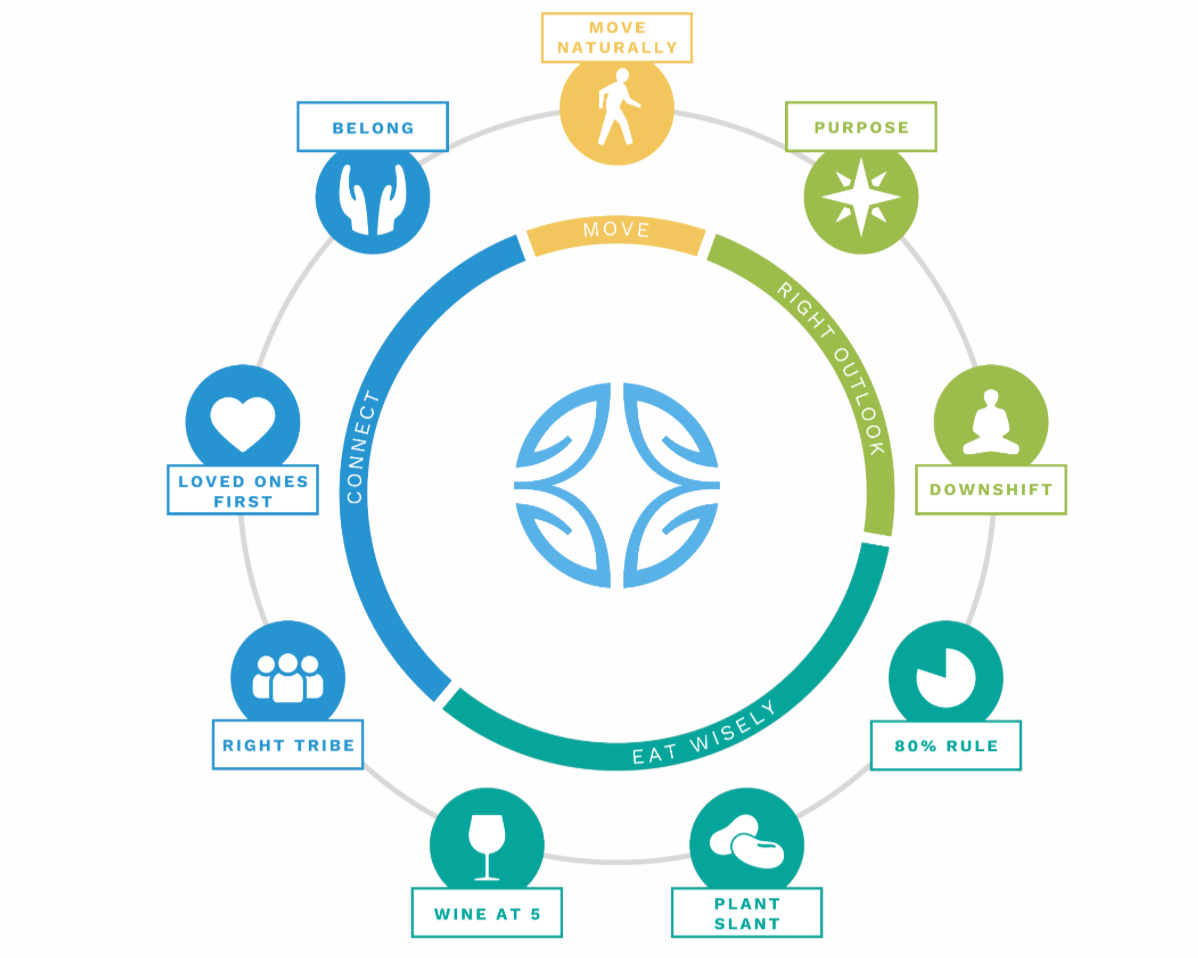Longevity Lessons from the World’s Healthiest People
Live Long
Live Well
In this Newsletter:
➡️ What are Blue Zones
➡️ 9 simple lifestyle habits that help people live to 100+
➡️ How to bring Blue Zone habits into your life
Would you want to live to 100? Maybe even more?
For some, the idea sounds inspiring — more time to grow, love, explore, and thrive. For others, it brings up fear — of disease, pain, or poor quality of life in the later years.
But what if living to 100 didn’t mean just “getting old” — but staying healthy, active, and happy for decades longer than most?
It’s not science fiction. Around the world, there are real communities where people live well into their 90s and 100s — with sharp minds, strong bodies, and joyful hearts. These regions are called Blue Zones.
So what’s their secret?
Today, we’re diving into the simple lifestyle habits that help them live longer — and better.
🌍 What Are Blue Zones?
The term “Blue Zones” comes from researcher Dan Buettner, who studied regions where people live well into their 90s and 100s with remarkably low rates of chronic disease.
These places include:
Okinawa, Japan
Sardinia, Italy
Ikaria, Greece
Nicoya, Costa Rica
Loma Linda, California
Despite different diets, faiths, and cultures — these communities share 9 lifestyle habits now known as the Power 9.
🌟 The Power 9: Longevity Habits We Can All Learn From
Move Naturally
They don’t “work out” — they just move. A lot.
Okinawan women squat daily. Sardinian men walk steep hills. Centenarians garden, cook, carry groceries, clean.
✅ Your Takeaway:
Create a lifestyle that includes movement — walk after meals, stretch while working, choose stairs, garden, or dance while cleaning.
Purpose (“Ikigai” or “Plan de Vida”)
They wake up with a reason to live — whether it’s caring for family, volunteering, or a personal passion.
✅ Your Takeaway:
Reflect on what brings meaning to your day. What excites you? Helping others? Creating? Learning something new?
Downshift (Daily Stress Relief Rituals)
Blue Zone people face stress like all of us, but they have daily ways to reset:
Ikarians nap
Okinawans pray and honor ancestors
Sardinians enjoy wine with friends
✅ Your Takeaway:
Build your own “downshift ritual.” Try journaling, breathwork, tea rituals, stretching, or 10 minutes of quiet.
80% Rule (“Hara Hachi Bu”)
Okinawans stop eating when they’re 80% full — a practice that naturally prevents overeating and weight gain.
✅ Your Takeaway:
Eat slowly. Pause before reaching for seconds. Notice fullness cues. Mindful eating is powerful.
Plant Slant
Their diets are mostly plants — especially beans. Meat is rare or used sparingly.
✅ Your Takeaway:
Add more lentils, chickpeas, and greens to your meals. Aim for colorful variety on your plate.
Wine @ 5 (Moderate Drinking with Connection)
In Sardinia and Ikaria, people enjoy a glass of local wine — always with food and company. But Loma Lindans (Seventh-day Adventists) don’t drink at all and live long too.
✅ Your Takeaway:
If you enjoy wine, keep it moderate — and savor it in good company. Or skip it and opt for herbal tea or sparkling water.
Belong
Almost all centenarians belong to a faith-based or spiritual community. The sense of shared meaning and support matters.
✅ Your Takeaway:
Whether it’s a church, club, or spiritual practice — community brings comfort and resilience.
Loved Ones First
They live near family, care for elders, and prioritize connection with loved ones.
✅ Your Takeaway:
Call your parents. Plan a weekly dinner. Make time for family — even chosen family.
Right Tribe
Blue Zone elders surround themselves with people who support healthy habits — Okinawan “moais” are groups of lifelong friends who look out for one another.
✅ Your Takeaway:
Build your circle intentionally. Seek friendships that inspire you to be your healthiest self.
🌟 Longevity = Lifestyle, Not Luck
There’s no single magic pill for aging well. But the Blue Zones remind us that longevity is not about hacks — it’s about habits.
What these people have in common isn’t genes — it’s how they live:
Daily movement
Whole food, plant-rich meals
Social connection
Stress relief
Purpose
Here are a few simple ways to start:
Take a 20-minute walk after lunch
Call a friend or family member
Pause before meals and check in with hunger
Start a 3-minute gratitude ritual before bed
Reflect on your “why” — your reason to wake up
Even adopting just one of these habits can make a difference. It’s not about perfection. It’s about building a lifestyle that supports you to thrive long-term — not just survive.
If this topic sparked your curiosity, I highly recommend checking out the official Blue Zones website too https://www.bluezones.com .
Warmly,
Viktorija 💛

